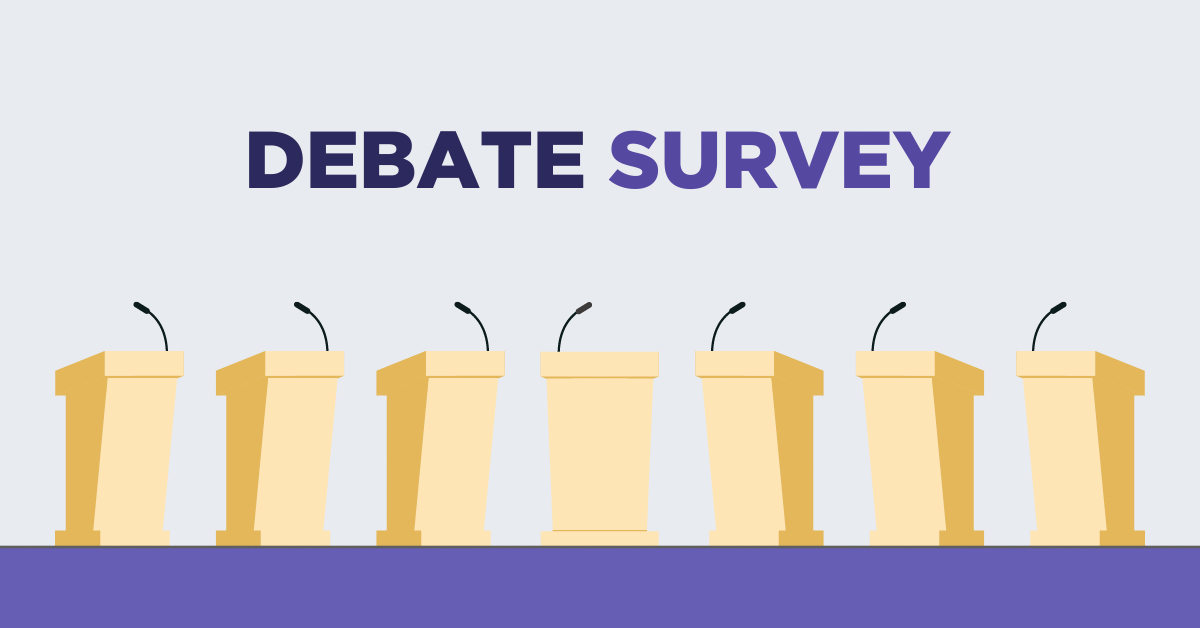LOS ANGELES — With three months to go before Florida’s March 17 primary, the sixth of 12 debates planned by the Democratic National Committee is scheduled to take place Thursday in Southern California.
- UPDATE: Following last week’s uncertainty, the Democratic Debate will go on as planned.
- WHEN: 8 p.m. ET Thursday, December 19.
- WHERE: The debate will be held at Loyola Marymount University in Los Angeles, California.
- WHEN: It will air live on PBS and CNN, and will be co-hosted by Politico.
- WHO: Former Vice President Joe Biden, Sen. Elizabeth Warren (D-Mass.), Sen. Bernie Sanders (D-Vt.), Sen. Amy Klobuchar (D-Minn.), South Bend, Ind. Mayor Pete Buttigieg, billionaire and activist Tom Steyer, and entrepreneur Andrew Yang.
Kamala Harris also qualified for this debate, but the California senator suspended her presidential bid earlier this month.
Candidates who remain in the race who failed to qualify include former Housing and Urban Development Secretary Julián Castro, Rep. Tulsi Gabbard (D-Hawaii), Sen. Cory Booker (D-N.J.), Sen. Michael Bennet (D-Colo.), former New York City Mayor Michael Bloomberg, former Massachusetts Gov. Deval Patrick, and author Marianne Williamson.
The Democratic Debate will go on as planned
The future of Thursday's debate is no longer in question. Early Tuesday morning, Unite Here Local 11 workers and Sodexo, the food services subcontractor for Loyola Marymount University, reached a tentative contract agreement. Unite Here Local 11 workers were planning to boycott L.A.’s debate, and all of the Democratic candidates had said they would not cross the picket line. The labor group credited the DNC and DNC Chairman Tom Perez with helping the two parties resolve the dispute.
The December Democratic debate is no stranger to union issues — last month, the DNC changed venues from UCLA to Loyola Marymount due to a labor dispute. When the candidates get on stage on Thursday night, they’d be wise to touch on worker’s rights and labor unions, topics that haven’t gotten much attention in previous debates.
Prior to the resolution, all seven participating candidates had said they would not participate in Thursday’s debate:
Which presidential candidate did you want to see qualify for the December Democratic debate?
Take our survey by clicking here.
Anyone’s race?
While health care, the economy, and climate change are frequently floated as top issues for Democratic voters, a September FiveThirtyEight/Ipsos poll identified one issue as significantly outweighing all others: the ability to beat Donald Trump and 21 percent respectively. Sanders could also reap some benefits with 14 percent of Harris supporters polled naming the Vermont Senator as their second choice.
Harris had also picked up a number of high-profile endorsements. Now that she’s out of the race, endorsements from the likes of California Secretary of State Alex Padilla, Rep. Ted Lieu, and San Francisco Mayor London Breed are up for grabs.
With the top three candidates only separated by a five-point polling spread, the candidate that picks up Harris’s support could gain an edge in the race.
Impeachment fading into the background?
The House impeachment inquiry had just gotten underway when the last debate took place. Things have progressed rapidly since then, with the House recommending two articles of impeachment following several rounds of public hearings. However, it’s unclear whether any of the impeachment proceedings since the last debate have moved the needle on public opinion.
Polls largely show that those who were in favor of impeaching President Trump remain so, while those who were opposed have been similarly unmoved.
All of the candidates set to appear in the debate are unanimous in their support of impeaching the president. Spending an inordinate amount of time dwelling on the proceedings is unlikely to be a political winner for a Democratic electorate eager to seize upon a candidate who not only aligns with their views on the issues, but can also demonstrate that they have what it takes to wrest the White House from Donald Trump.
Candidates who won’t be on stage
To qualify for the December debate, candidates needed to amass the support of at least 2,000 unique donors and register at least 4 percent in four DNC-approved polls, or 6 percent in two approved early-state polls. While seven candidates succeeded in doing so, an equal number of candidates failed to meet that threshold.
Some have called out the DNC participation requirements for leading to limited diversity on the stage. Until Andrew Yang qualified, all the candidates participating in the December debate were white. Some Democratic party leaders and candidates felt the lack of diversity was notable, especially given Senator Cory Booker’s absence in a year where African American voters will be particularly important to the Democratic Party.
Booker himself, along with Julián Castro, have been two of the harshest critics of the DNC debate rules. Booker commented that the current system “preferences millionaires and billionaires” over candidates of color, while Castro said, “by not having anyone of color onstage, the party loses a lot. And, you know, the DNC ought to do some soul searching on these thresholds.”
Both Booker and Castro came extremely close to meeting the requirements for this debate, only to fall short a few days before the cutoff.
Several candidates also decried Kamala Harris’s withdrawal from the campaign trail. Elizabeth Warren has even been fundraising off the development, with ad copy reading, “Kamala Harris and Kirsten Gillibrand ... have been forced out of this race, while billionaires Tom Steyer and Mike Bloomberg have been allowed to buy their way in.”
In a similar vein, Tulsi Gabbard had announced she would boycott the December debate even if she did qualify, citing unfairness in the DNC’s practices.
This discussion over DNC debate rules is likely to continue as participation requirements continue to get stricter for future debates.




